
Puppy milk or milk replacer is something which may be necessary if you have a litter of pups, but did you know they don’t need milk after 12 weeks?
Many of the brands of puppy milk available from big manufacturers like Mars and Nestle (under the Purina banner), and those available at Coles, Woolworths, IGA, or “bargain basement” stores might not be as healthy and nutritious as you may think.
You also need to be aware of the difference between puppy milk replacer to support puppy growth, and puppy milk designed as a supplemental treat.
Some puppy milk replacers in Australia are actually pretty good, but how can you tell which ones?
Don’t worry – this guide on puppy milk will give you all the information you need!
Why would you use a puppy milk?
If you have a litter of puppies ideally the mother will readily support their growth with her own milk, and this should be encouraged as much as possible.
Sometimes, however, we need to support the growth of the puppies with a supplement milk replacer.
If you’re a breeder yourself you will already know the importance of weighing young pups daily, and will often see with larger litters some puppies get “forced out” in the scramble for nipples and can quickly fall behind with their growth.
When this happens, a puppy milk replacer may be necessary to keep them healthy, or in some instances keep them alive.
Also, as the puppies grow and start developing teeth, your bitch may have enough, pushing the puppies away or barking at them. There may be a period of time between whelping and transitioning to a more solid diet where a puppy milk may prove a lifesaver.
But how do you know if a puppy milk is good? This isn’t as easy as it may seem – although the below recommendations should help!
Popular brands of puppy milk in Australia
Wombaroo Dog Milk Replacer
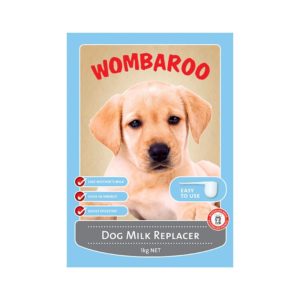
From speaking with breeders it seems Wombaroo Dog Milk Replacer is a good go-to option.
The ingredients are a good mix of whey proteins, caseins (which is protein from milk – the stuff that makes milk white), and whole milk solids. All the ingredients (listed below) show this puppy milk has been formulated to support the health of your puppies.
Another benefit of Wombaroo is it’s readily available at Pet Circle, PETstock, and a variety of other stores, which makes it easy for you to source.
From sifting through consumer feedback and forums, the general consensus is Wombaroo is respected in terms of both quality and affordability, which is testament to its popularity.
Wombaroo Dog Milk Replacer ingredients: Whey proteins, caseins, whole milk solids, vegetable oils, omega-3 & 6 fatty acids (including EPA, DHA & Arachidonic Acid), taurine, vitamins A, B1, B2, B6, B12, C, D3, E, K, nicotinamide, pantothenic acid, biotin, folic acid, choline, inositol, calcium, phosphorus, potassium, sodium, magnesium, zinc, iron, manganese, copper, iodine, selenium.
Baxter’s Puppy Milk
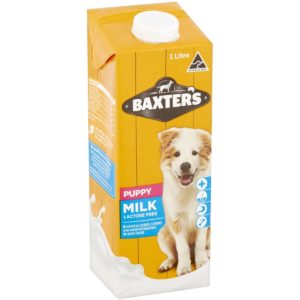
I wanted to cover Baxter’s Puppy Milk right after our benchmark Wombaroo to show the difference in quality between brands of puppy milk.
Baxter’s is a home brand of Woolworths, or what can be referred to as a phantom brand – this is where a home brand is packaged to look like bigger label brands.
If you’ve read the Baxter’s dog food review, or read any of the many worrying consumer reports of the Baxter’s brands, then it would be fair to assume it’s not just the ingredients we need to think about, but also the quality of those ingredients.
Baxter’s Puppy Milk ingredients: Whole Milk, Skim Milk, Skim Milk Solids, Vegetable Oil, Emulsifiers, Vegetable Gums, Methionine, Vitamins, Lactase.
Immediately we can see vast differences between the Baxters puppy milk and Wombaroo. Most of the Baxters puppy milk is milk.
We also see ambiguity with ingredients, which I never consider to be a good thing when it comes to pet foods. Emulsifiers for example – these are used to stop fats separating from water, but what emulsifier has been used? Possibilities are gums, lecithin, modified starch, and glycerine, and I imagine they’ve opted for the cheapest. Glycerine, for example, has a bad name in pet health.
When you find ambiguous ingredients, you begin to question the quality of other ingredients. If it looks like costs have been cut for some ingredients, then it’s fair to assume the same applies to others. What quality of milk? What about the vegetable oil?
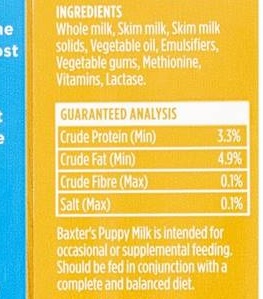
Lastly, when we look at the packaging of Baxter’s Puppy Milk, we see the wording “Baxter’s Puppy Milk is intended for occasional or supplemental feeding only.”
This is somewhat of a get-out clause. The product is not meant to be a complete and balanced meal, so doesn’t fall under those regulations.
In fact, it would seem the target market for Baxter’s Puppy Milk is consumers who may see this as a nutritious treat for their young pups.
Some breeders may see it as a nice and cheap option for raising their young puppies before they sell them to families, so you have to ask yourself if those puppies are getting the best nutritional start in life.
Pedigree Puppy Milk
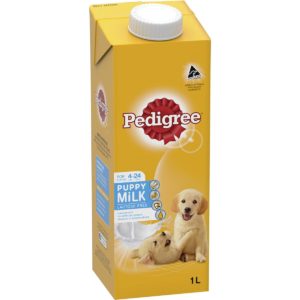
Pedigree is a household name, and you’ll find Pedigree Puppy Milk readily available at Coles, Woolworths, and most retailers. It’s one of the many Mars brands of pet products.
It’s understandable why most people consider Pedigree a good brand as it’s so well known – we’ve all heard of Pedigree, haven’t we?
But just because a brand is well known, it doesn’t mean it’s good. It may just mean (1) the product is cheap, and (2) the marketing is great.
So is Pedigree Puppy Milk better than the Baxters brand above? Let’s take a look…
Pedigree Puppy Milk ingredients: Milk; water; malt; sucrose; salt; emulsifier; vegetable gum; taurine; lactase enzyme; vitamins (vitamin C, vitamin E, vitamin B1).
Even compared to Baxter’s Puppy Milk above these ingredients look bad. How much water are you paying for? Possibly nearly half of the product?
Malt is somewhat ambiguous, and concerning if you consider malt syrup contains around 65% maltose as a carbohydrate with a high glycemic index.
We also find sucrose as the 4th ingredient, so sugar. Then salt.
Again, we see emulsifier with zero clarification as to what’s actually been used.
The packaging says suitable for puppies aged 4 to 24 weeks, but the question I would ask is how suitable?
To finish off with an interesting point about Pedigree Puppy Milk, it seems on the Woolworth’s website it’s listed as “Pedigree Puppy Milk Treat“.
Pets Own Dog & Puppy Milk
Pets Own is another brand of Puppy Milk easily available, both in supermarkets like Woolworths and online retailers like Pet Circle.
An interesting fact about Pets Own Puppy Milk is it was the first lactose-free pet milk sold worldwide!
This milk boasts glucosamine as an added bonus to support the health of your puppy’s joints. That’s a good thing, but lets take a look at the ingredients as a whole:
Pets Own Dog & Puppy Milk ingredients: Whole milk, vegetable oil, non fat milk solids, vitamins & minerals, emulsifier, vegetable gums, glucosamine sulphate, amino acids (incl. methionine), lactase enzyme.
I think you’ll agree this puppy milk isn’t too different from the last two?
We still have ambiguous ingredients – that old emulsifier chestnut – and I’m sure you’ll also agree all three of these supermarket brands are very different to Wombaroo which we covered first?
Royal Canin Babydog Milk
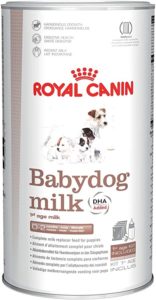
Royal Canin are a very well known brand worldwide for prescription and breed-specific dog foods, and I’m sure you’re already well aware of the brand.
Royal Canin is actually a Mars brand, but it has to be said one of the better ones (although I personally question the ingredients in their dog foods). It’s further up the scale to Pedigree.
One thing positive you can say about Royal Canin is their manufacturing standards and quality control are quite good.
Royal Canin Babydog as a complete milk replacer is actually one of the better options, and it’s suitable from birth up to 2 months.
Unfortunately it seems hard to source in Australia, so if you know of a reputable retailer please say so in the comments.
Royal Canin Babydog ingredients: Milk proteins, milk fat, vegetable oils, whey protein, fish oil (source of DHA), minerals, fructo-oligo-saccharides. Plus essential nutrients.
I still find Wombaroo Dog Milk Replacer the better option in terms of ingredients, but from researching consumer feedback it has to be said it’s pretty good for Royal Canin Babydog as well.
Can cows milk or goats milk be used instead of puppy milk?
The short answer to this is no. Cows milk and goats milk don’t contain all the nutrients required to support the growth of your young puppies.
In addition, the use of unpasturised milk may sound like a good idea, but may prove problematic. Some dogs, and some cats, can also be lactose intolerant.
I’m aware some breeders wean puppies on other foods as well as mothers milk or a milk replacer. Common choices are Greek yoghurt, kefir, and bone broth.
All of these foods should be fine to introduce to young pups in moderation, both adding nutrition and helping their digestive systems adapt to new foods.
Bone broth is an excellent source of nutrition for any age of dog.
Main photo credit: Unsplash



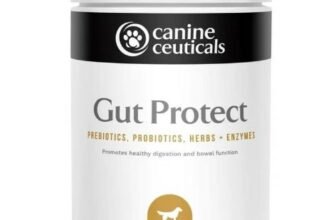
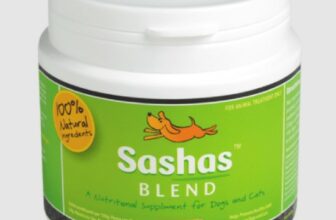
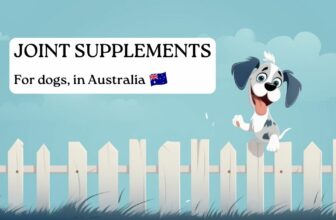
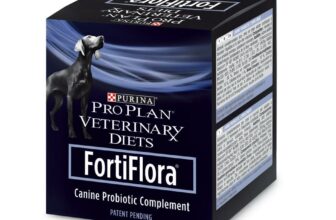
Hi,
I personally prefer unprocessed foods, these products on supermarket and vet shelves that have synthetic nutrients added, how are they absorbed into the body? Research that, its an interesting topic to say the least!.
Bone broth also comes with cautions.. for instance, dogs with seizures or histamine problems shouldn’t have bone broth and dogs with histamine problem should avoid fermented foods.
“The short answer to this is no. Cows milk and goats milk don’t contain all the nutrients required to support the growth of your young puppies”
No, especially if the pup is fed kibble exclusively…
RESEARCH natural rearing, there are breeders her have been practicing this for centuries..you only need to look at these dogs to see the overall benefits.
Kibble to me isn’t a food, its feed… dogs and cats are the only animals who are fed a non species appropriate diet according to science.
ANI